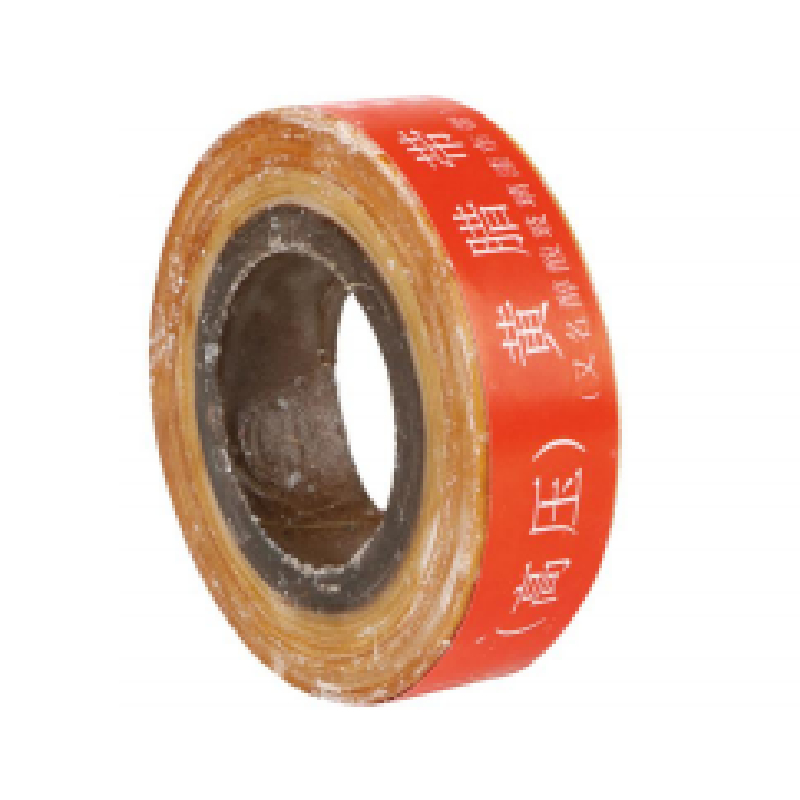Understanding Fabric Electrical Tape A Versatile Tool for DIY Enthusiasts and Professionals
Fabric electrical tape is an essential tool that combines practicality and versatility, favored by both DIY enthusiasts and professionals. It is specifically designed to insulate and protect electrical connections, ensuring safety and efficiency in various applications. This article will delve into the characteristics, uses, and advantages of fabric electrical tape, highlighting why it has become a staple in the toolkit of many.
Characteristics of Fabric Electrical Tape
Fabric electrical tape is typically made from a blend of materials that deliver excellent performance under various conditions. The tape is often constructed from a woven fabric backed with a strong adhesive, providing durability and flexibility. The fabric surface allows for easy manipulation and application, making it ideal for wrapping around irregular shapes and surfaces.
One of the standout features of fabric electrical tape is its ability to resist heat and moisture. This resistance makes it suitable for a wide range of environments, from automotive applications to household electrical systems. The tape can withstand temperatures ranging from -10°C to 105°C, making it a reliable choice for both indoor and outdoor use.
Applications of Fabric Electrical Tape
Fabric electrical tape serves multiple purposes in various fields. In the electrical industry, it is predominantly used to insulate wires and cables. This insulation is crucial in preventing electrical shocks and short circuits, protecting both the equipment and the user.
Beyond its primary electrical applications, fabric tape finds utility in the automotive sector. It is frequently used to wrap wiring harnesses, providing adequate protection against abrasion and wearing due to movement. Its robust adhesive ensures that it remains securely in place, even under the stress of engine vibration or temperature fluctuations.
fabric electrical tape

Another common application is in the realm of arts and crafts. DIY enthusiasts often utilize fabric electrical tape for projects that require a flexible yet strong bonding material. Its colorful varieties can enhance the aesthetic appeal of projects, making it a popular choice for decorative purposes.
Advantages of Fabric Electrical Tape
The advantages of fabric electrical tape are manifold. One significant benefit is its ability to conform to various shapes and sizes, making it easy to cover irregular surfaces. This adaptability ensures a snug fit and comprehensive coverage, which is vital in preventing exposure to electric currents.
Additionally, fabric electrical tape is known for its resistance to wear and tear. Unlike traditional PVC electrical tapes, which can become brittle over time, fabric tape maintains its integrity and performance, prolonging its lifespan. This longevity saves both time and money for users, as less frequent replacements are needed.
Moreover, the wide range of colors available enhances its versatility. Users can opt for specific colors not just for aesthetics but also for color-coding wires for easy identification. This feature is particularly useful in complex projects where numerous connections are involved.
Conclusion
In conclusion, fabric electrical tape is a vital tool that combines performance, flexibility, and decorative potential. Its reliable insulation properties make it indispensable in electrical applications, while its versatility allows for broader uses in various other fields. Whether you are a professional electrician, an automotive technician, or a DIY hobbyist, having fabric electrical tape in your toolkit ensures that you are well-equipped to handle a wide range of projects safely and efficiently. The practicality and advantages of fabric electrical tape certainly justify its popularity, making it a must-have item for anyone engaged in hands-on work.
-
XIANGFAN Rubber Tape-Ultimate Solutions for All Your Insulation NeedsNewsJun.24,2025
-
XIANGFAN Rubber Tape-Protection for Industrial and Residential ApplicationsNewsJun.24,2025
-
XIANGFAN Rubber Tape: Superior Safety and Sealing for Demanding EnvironmentsNewsJun.24,2025
-
XIANGFAN Rubber Tape: Reliable Solutions for Every Electrical ChallengeNewsJun.24,2025
-
XIANGFAN Electrical & Industrial Tape: Powering Reliability Across IndustriesNewsJun.24,2025
-
XIANGFAN Electrical & Industrial Tape: Excellence in Every ApplicationNewsJun.24,2025
